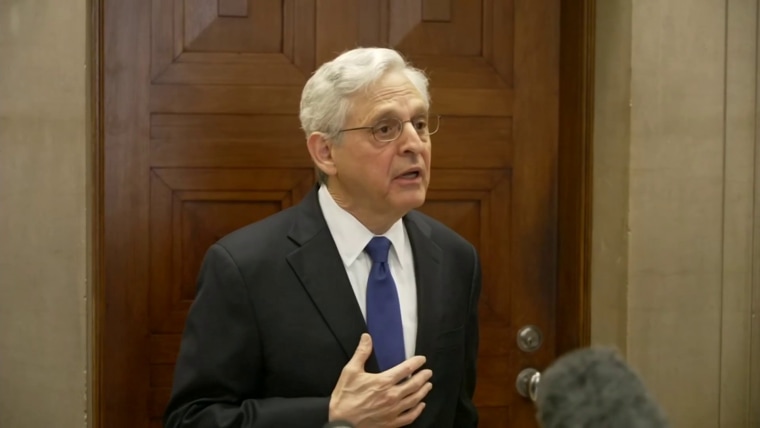President Joe Biden has asserted executive privilege on advise of US attorney general, Merrick Garland over the audio of his interview with special counsel Richard Hur on his handling of classified documents after he left the vice presidency in 2017
Joe Biden moved his privilege to action on Thursday to block audio recording of his interview with special council, Richard Hur who led an investigation into Biden’s handling of classified document case. On recommendation from U.S. general attorney, Merrick Garland, Biden exercised his executive privilege.
Characterizing Mr. Garland to be equally responsible for allowing US president to keep certain records under wrap, Republican-led panel in the US House of Representatives has voted on Thursday to hold U.S general attorney in contempt of the U.S. Congress. Another House committee met on Thursday night to consider approving contempt motion, which could then be sent to the full chamber for a vote.
“Merrick Garland refused to perform the duties required of the United States attorney general. Today, the House Oversight and House Judiciary Committees voted to hold him in contempt of the Congress. No one is above the law,” posted Oversight committee on X page.
The House Judiciary committee voted 18-15, entirely along partisan lines, to advance the resolution recommending that Mr. Garland to be held contempt. Several of its Republican members have travelled to New York to show their support for Mr. Trump in his ongoing criminal trial.

Findings from Biden-Richard Interview
Richard Hur, who led the investigation into Joe Biden’s handling of classified documents, released a 345-page report in February that was a result of a year-long inquiry into how Mr. Biden kept classified documents after leaving the vice-presidency in 2017. The report concluded Joe Biden “willfully retained and disclosed classified materials after his vice-presidency when he was a private citizen.”
The report that was released subsequent to an extensive interview with Joe Biden led by Special Counsel Richard Hur in October last year, did not bring any charges against the incumbent president, but wrote in the report that Biden’s actions presented “serious risk to national security.” Hur, a former U.S attorney nominated by Trump, was appointed in January of 2023 to investigate after Obama-era classified documents were discovered in a private office and at Biden’s garage at his home in Delaware.
Richard Hur led a year-long probe into Biden’s handling of these classified documents, including interviewing dozens of witnesses and Biden himself, in which the special counsel said Mr. Biden was unable to recall details relevant to the investigation. He also recounted that Mr. Biden had also struggled to recall milestones in his own life, including when his oldest son Beau had died from cancer.
The revelation shone a spotlight on one of President Joe Biden’s biggest political weakness – voter concerns about his age. Attributing his poor memory to his old-age, it sparked a furious conversation among residents who questioned whether if Joe Biden was mentally fit to serve another term in the office.

GOP demands audio from Joe Biden’s interview with Richard Hur
In a congressional hearing, a month after the release of the report, Richard Hur defended his report as “necessary, accurate, and fair.” Dissatisfied by the report that was published by White House officials, members of House Republican demanded a complete submission of the audio tape of an interview that Special Council, Richard Hur had conducted with President Joe Biden.
Congressional Republicans have pushed to learn more about the report, subpoenaing the US Department of Justice for full transcripts of the interview and other relevant documents. House Representative Speaker, Mike Johnson made an appeal to the Department of Justice to release the audio tapes that Biden is so afraid would be made public. “Why is President Biden now using executive privilege to prevent the audio recording from coming out?,” he said, “Because he’s afraid of what you’ll hear. DOJ must release the tapes.”
But Mr. Garland told his boss in a letter on Wednesday that audio tapes of his interview “fall within the scope of executive privilege.” Executive privilege is a legal doctrine that shields some executive branch records from being made public. His contempt resolution may ultimately go to a vote before the full House. Republicans currently control the chamber by a single seat and it is unclear if they have the votes to hold Mr. Garland in contempt.
Mr. Biden confirmed he was blocking the release of the audio tapes in a separate letter from his White House counsel to the committee chairman on Thursday morning. “The absence of a legitimate need for the audio recording lays bare your likely goal – to chop them up, distort them, and use them for partisan political purposes,” the official statement from White House said.












